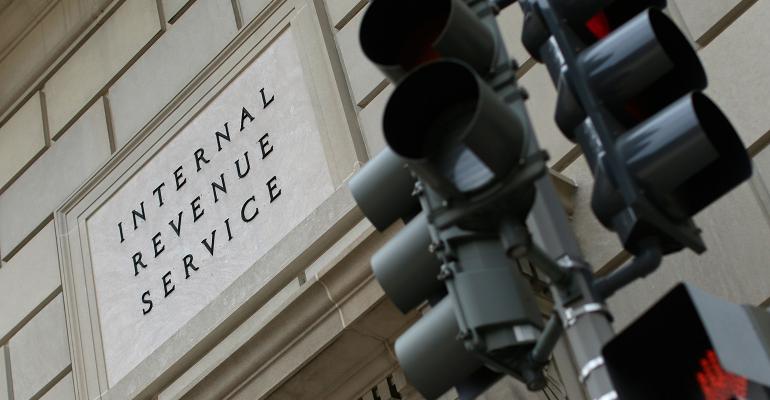The Internal Revenue Service has wrapped up its annual Dirty Dozen campaign, which it self-proclaims as “the worst of the worst” tax scams. The last few scams in the series leave a lot to be unpacked. To round out the series, the agency highlights schemes explicitly aimed at high-net-worth individuals, including fake charities looking to exploit wealthy taxpayers, illegal tax deductions and tax avoidance strategies and unscrupulous tax preparers.
Tax Day might be behind us, but HNWI often get extensions for filing taxes, given the complexity of their returns. Furthermore, many of these schemes remain a concern year-round.
Fake Charities
Deceitful organizations are quick to take advantage of well-meaning individuals looking to make donations during times of natural disasters and other tragic events, such as acts of war. Wealthy individuals often give generously, making them a prime target of fake charities. The IRS reminds taxpayers that only donations to legitimate tax-exempt organizations qualify for a tax deduction and warns individuals to be wary of fraudulent charities that use similar-sounding names of legitimate charities, often via email or fake caller IDs, to pressure their victims into making payments or disclosing personal information such as Social Security numbers or credit card numbers. Not only will the taxpayer end up losing money and the deduction, but they may also potentially set themselves up to be victims of identity fraud.
Remind clients to always conduct due diligence and vet a charitable organization before donating, including using the IRS website's Tax-Exempt Organization Search (TEOS) tool to ensure legitimacy.
Illegal Tax Schemes and Improper Deductions
Next, the IRS warns wealthy individuals about tax traps designed by shady tax practitioners. If the tax strategy sounds too good to be true, it probably is. Clients should be wary of tax preparers promoting schemes and aggressive strategies to reduce taxes, running the gamut from “inflated art donation deductions” to aggressive charitable remainder annuity trusts and detailed shelters that maneuver to delay paying gains on property.” While the art of estate planning often involves carefully designed tax-saving strategies within the letter of the law, IRS Commissioner Danny Werfel warns HNWI of solicitations for unrealistic tax structures that can leave taxpayers with civil or criminal tax penalties.
One such practice is encouraging taxpayers to purchase art, often at a “discounted” price. The promoter may offer additional services, such as storage, shipping and arranging the appraisal and donation of the art. The unscrupulous promotor promises the art is worth significantly more than the purchase price.
The scheme encourages the purchaser to donate the art after waiting at least one year and to claim a tax deduction for an inflated fair market value, which is substantially more than they paid for the artwork. The IRS warns that it’s equipped with art appraisers who can determine the true valuation and to be wary of promoters who “suggest taxpayers donate art annually and allow them to buy a quantity of art that guarantees a specific deductible amount” or even arrange for certain charities to take the donations.
The IRS also warns of practitioners who misuse trusts, such as charitable remainder trusts, to eliminate capital gains and those who recommend schemes such as deferring the recognition of gain on the sale of appreciated property and then organizing an abusive shelter through selling them monetized installment sales.
Unscrupulous Practitioners
Worse yet, the IRS reminds wealthy taxpayers to avoid practitioners who promote fake tax strategies and fraudulent offshore schemes designed to reduce or avoid taxes altogether.
You might be wondering how an HNWI can fall prey to a corrupt preparer, as these individuals usually have a solid team of advisors and planners on hand. “Generally, they are not preparers, they will have a salesperson talk about very advanced and 'copyrighted' strategies. They’ll explain that 'most preparers' don’t understand the tax code like they do. Also, they’ll sometimes show 'tax opinion' letters from tax attorneys they work with on how the copyrighted strategy works. Most of the time, their prior clients are the ones sending them new clients,” said Duncan Campbell, the leader of Baker Tilly’s private wealth practice in Frisco, Tex., explaining how these elaborate schemes work.
Last but not least, the IRS urges taxpayers to be cautious of “ghost preparers,” that is, preparers who don’t sign tax returns they prepare. According to Campbell, “these pop-up scammers are known to target HNWI and encourage them to take advantage of tax credits and benefits for which they don’t qualify. In return, these ghost preparers charge a large percentage fee of the refund or steal entire tax refunds. Then they disappear, leaving well-meaning taxpayers to deal with the consequences.”

